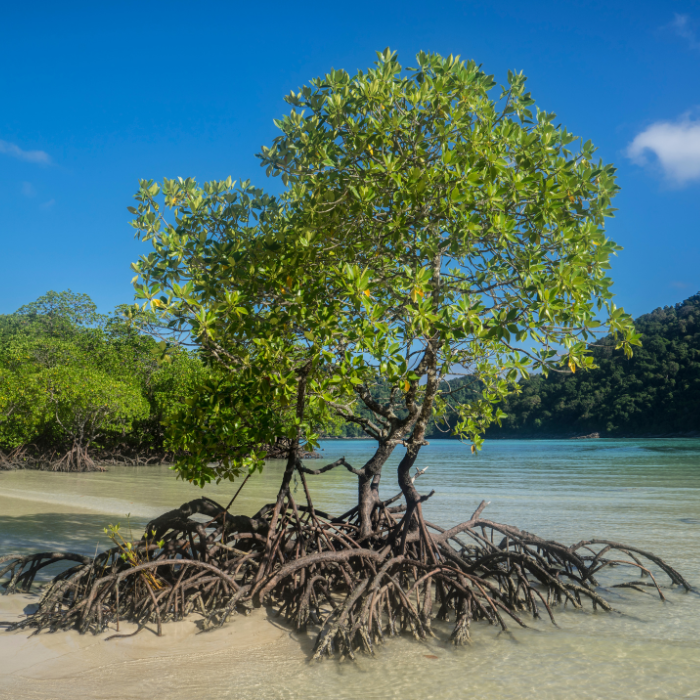Mangrove forests are invaluable ecosystems that provide critical ecological services, including carbon sequestration, shoreline stabilization, and habitat provision for numerous species. Despite their importance, mangroves face significant threats from human activities such as deforestation, pollution, and climate change. In this blog post, we’ll explore the importance of mangrove conservation and highlight the urgent need to protect these coastal treasures.
Protecting and restoring mangrove forests can play a crucial role in global efforts to combat climate change and achieve carbon neutrality. Mangroves are highly efficient carbon sinks, storing large amounts of carbon in their biomass and sediment.
- Ecological Significance: Mangrove forests are biodiversity hotspots, supporting a wide range of plant and animal species. They serve as nurseries for fish and crustaceans, providing essential habitat for juvenile marine life. Additionally, mangroves act as natural buffers against coastal erosion and storm surges, protecting coastal communities from natural disasters.
- Carbon Sequestration: Mangroves are highly efficient carbon sinks, storing large amounts of carbon in their biomass and sediment. By sequestering carbon dioxide from the atmosphere, mangroves help mitigate climate change and reduce greenhouse gas emissions. Protecting and restoring mangrove forests can play a crucial role in global efforts to combat climate change and achieve carbon neutrality.
- Economic Benefits: Mangrove ecosystems provide valuable resources and services that support local economies. They sustain commercial fisheries, ecotourism activities, and traditional livelihoods, contributing to food security and poverty alleviation in coastal communities. Furthermore, mangroves enhance the resilience of coastal ecosystems, safeguarding vital infrastructure and economic assets from the impacts of climate change.
- Conservation Challenges: Despite their ecological and economic importance, mangroves are under threat from human-induced pressures. Deforestation, urbanization, pollution, and overexploitation are among the primary drivers of mangrove loss worldwide. Addressing these conservation challenges requires coordinated efforts at local, national, and international levels, as well as the involvement of governments, NGOs, and local communities.
In conclusion, mangrove conservation is essential for preserving coastal biodiversity, mitigating climate change, and supporting sustainable development. By recognizing the ecological, economic, and social values of mangrove ecosystems, we can work together to ensure their long-term survival and resilience. Through effective management strategies, conservation initiatives, and public awareness campaigns, we can protect these invaluable coastal treasures for future generations.


